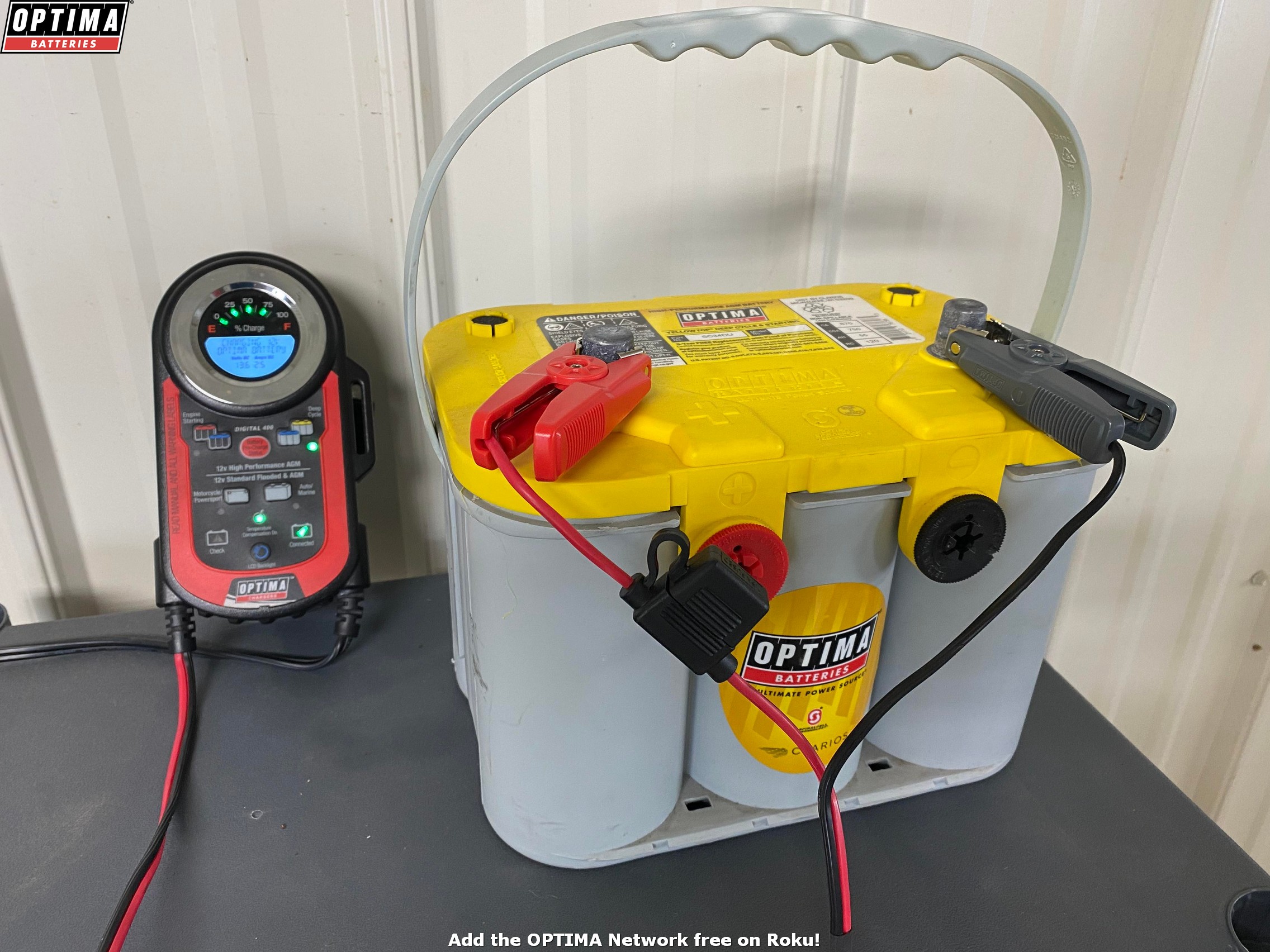Can you recover a dead battery?

- Sponsor
- OPTIMA Chargers
- Location
- Milwaukee, WI


"My battery is dead! What do I do now?" We get that question a lot, whether someone is talking about our batteries or a battery they are looking to replace. The simple answer is- try to charge the battery. That may seem overly simplistic, but the truth is, many batteries that are thought to be "dead" are just deeply-discharged and work fine, when properly-recharged.
Jumper cables and jump packs are not battery chargers. They are more along the lines of the electrical equivalent of a 1-gallon emergency can of gas. They can get your vehicle started and get you where you need to go, but you should make a point of fully-recharging your battery with a battery charger as soon as you can, just as you wouldn't expect that one gallon of gasoline to keep your engine running indefinitely.
Alternators are not battery chargers. Most vehicle alternators are designed to maintain batteries that are near a full state of charge, not recharge deeply-discharged batteries that can't start a vehicle without a jump-start assist from a set of jumper cables. Even though they're not designed to recharge those batteries, sometimes alternators can recharge deeply-discharged batteries, but there's a lot of "ifs" involved in that scenario- if the car is driven (not idled) for a long enough period of time, if the engine RPMs while the car is being driven are high enough to generate enough current to recharge the battery, if the alternator is still strong enough to perform this task, if the owner doesn't mind causing tremendous strain on their alternator that can lead to premature failure.
Some might also believe they can keep their battery properly-maintained by periodically starting their car and letting it idle for a period of time. In looking at all the "ifs" we've previously-described in such a scenario, you should know that this practice may actually discharge a battery faster than simply letting a vehicle sit, if the engine isn't operated at a sufficient speed for a sufficient amount of time, to replace the energy that was consumed during storage and starting.
The safest thing to do if your battery has been deeply-discharged is to attempt to fully-charge it with a battery charger. However, if a battery has been deeply-discharged below a charger's minimum operating voltage, it won't charge the battery. That's why it's a good idea to measure a battery's voltage before you start charging. Measuring the voltage before and after charging will tell you if the charger was able to deliver any or enough current to the battery. Some chargers will turn on and briefly operate, but if the battery doesn't register a minimum voltage level within a specific time frame, the charger may shut off. That fools a lot of folks into believing their chargers are working, when they actually shut off shortly after they were turned on.
Our OPTIMA Chargers and Maintainers can charge any 12-volt lead-acid battery, including AGM batteries and batteries that have been discharged all the way down to 1.25 volts. Our chargers also have voltage gauges on them, which can measure the pre-charge voltage level and tell you exactly how much voltage is in the battery you need to charge. Take care of your battery and it will take care of you!
